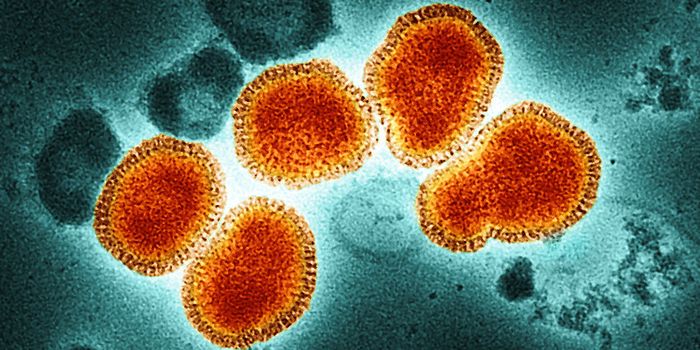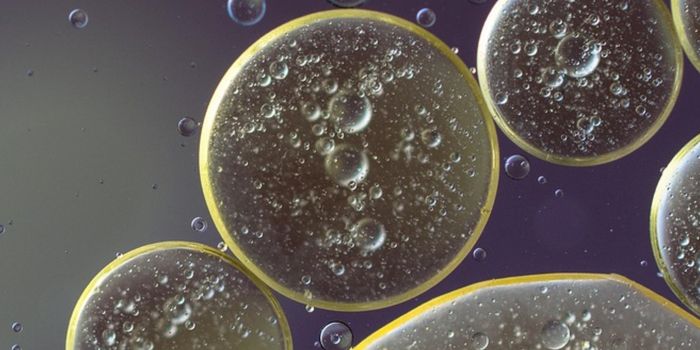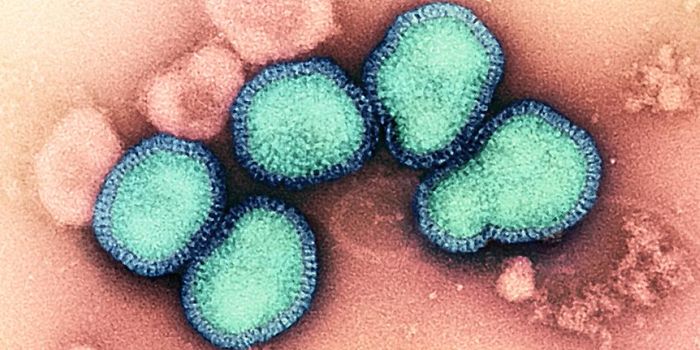Understanding How Gut Bacteria May Promote Leukemia
The gastrointestinal tract holds a vast community of diverse microbes, and many of them play crucial roles in our health. These microbes help us break down food and absorb nutrients, and they can produce molecules that affect our bodies. The human body also has to be protected from these microbes, and the gut has a lining that keeps the gut microbiome sequestered. But this lining can also degrade and become more permeable in some conditions or as we age. Some of those bacteria and the molecules they make might find their way into the body.
New research has now shown that a molecule made by gut bacteria seems to promote the growth of pre-leukemic blood cells, which can eventually develop into leukemia. This mechanism could also be at work in other diseases in individuals with a condition known as clonal hematopoiesis of indeterminate potential (CHIP), the researchers suggested. The findings have been reported in Nature.
"This study significantly advances our understanding about how blood cancers develop and progress, especially in older adults. The exciting news is that we also may have a way to intervene early, before these pre-leukemic cells evolve into more aggressive disease. We look forward to conducting further studies to pursue this new approach," said corresponding study author Daniel Starczynowski, Ph.D., director of the Advanced Leukemia Therapies and Research Center at Cincinnati Children's Hospital.
Leukemia survival rates have improved somewhat in recent years, but it's still a serious disease that tends to affect people older than 65. Over 470,000 Americans now have leukemia, and more than 60,000 new cases are diagnosed every year in the US alone. This research may help explain why aging is a serious risk factor.
Older people tend to carry more Gram-negative bacteria in their guts; the cell walls of Gram-negative and -positive bacteria are different. The increase in Gram-negative bacteria in older people leads to an excess of ADP-heptose, a bacterial sugar that also seems to lead to some heath problems. Starczynowski noted that only older adults and young people with a disrupted gut carry this molecule in circulation.
ADP-heptose seems to promote the formation of little structures called TIFAsomes, which appear to activate the expansion of pre-leukemic blood cells. A TIFAsome Assay was developed by the team. It can detect ADP-heptose activity in blood samples.
Many new blood cells have to be produced by the body every day. This is done by blood stem cells in bone marrow, in a process known as hematopoiesis. If mutations build up in these blood stem cells over time, a person can acquire clonal hematopoiesis of indeterminate potential (CHIP). Routine screenings for this disorder aren't available, but it's estimated that as many as 20% of adults over 70 have CHIP, which can also increase the risk of other disorders.
A mouse model of CHIP was used in this study. The work showed that early-stage pre-leukemic cells expanded dramatically if they were exposed to bacterial ADP-heptose.
A protein in mutant blood cells known as ALPK1 was necessary for ADP-heptose to cause pre-leukemia cell expansion. Unfortunately, there is no drug that can block ALPK1 right now. However, inhibiting this protein may help reduce the risk of some blood cancers. The researchers confirmed this by using an experimental inhibitor, but more research will be required before this work will be translated to human patients.
"One of our goals is to develop an ALPK1 inhibitor that can be used in humans. These findings provide promising insights that will help us move forward," Starczynowski said.
Other research has indicated that CHIP could be related to the risk of other diseases of aging, including cardiovascular disease, gout, rheumatoid arthritis, and osteoporosis. Recent research reported in the New England Journal of Medicine has indicated that people with CHIP are more likely to die at younger ages compared to those without the disease.
This work has also added to evidence that the gut microbiome is intimately and significantly linked to human health. But we don't yet know how to modify diets to reduce the production of certain molecules such as ADP-heptose.
Sources: Cincinnati Children's Hospital Medical Center, Nature









